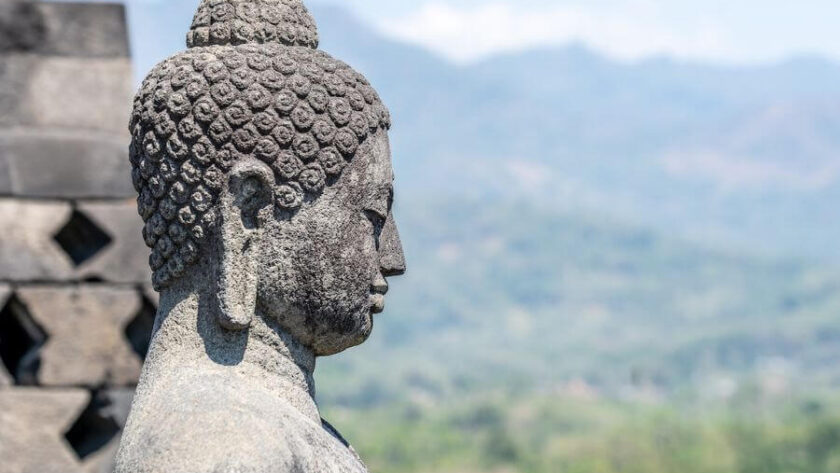Buddhism is renowned for its way of peace and kindness.
Just imagine when a Buddhist monk says “kill the Buddha.”
The eighth-century Zen monk Linji Yixuan famously said to his pupils, “If you meet the Buddha on the road, kill him.”
Picture how Yixuan’s pupils must have felt about what their teacher had just said. This quote will shock and baffle anyone who hears it.
So what does it really mean?
Well, the phrase “Kill the Buddha” is frequently regarded as a koan, a short story or dialogue that is exclusive to Zen Buddhism.
This specific koan has become popular all over the world and has given rise to numerous interpretations. Some have even thought Linji was being literal when he said this quote when teaching about violence (but he wasn’t).
The Meaning of “If You Meet The Buddha On The Road, Kill Him”
Linji was a stern and unyielding Dharma teacher who was known for educating his pupils through strict conduct. These weren’t employed as punishment, but rather to startle the pupil out of his wandering, sequential thinking and into the crystal clear awareness of the current moment.
According to Linji, “Buddha” also refers to mental illumination that permeates the complete dharma universe. Linji is referring to Buddha Nature, which according to Mahayana Buddhism is the inherent nature of all lives.
The Zen monk and author, Shunryu Suzuk, mentions in his book: “Kill the Buddha if the Buddha exists somewhere else. Kill the Buddha, because you should resume your own Buddha nature.”
According to Mahayana Buddhists, every person already possesses the Buddha’s nature. There is a seed that could sprout inside each one of us. This is known as Buddha nature and essentially implies that everyone can enlighten themselves in the same way as the Buddha.
The Koan “Killing the Buddha” entails destroying our ideas and our conviction that we have a complete understanding of everything.
We frequently reach places in our life where we want to consult experts who have traveled further down the road for guidance and experience.
When learning, there may come a time when the student is prone to idolizing another person or teacher and forgoes their own quest for knowledge.
“Killing the Buddha” means being open to all experiences, being certain of uncertainty, feeling secure in ambiguity, and feeling secure in vulnerability. It involves accepting things as they are in whatever sense they may be. We are all simultaneously our own teachers and students.
The Understanding of Knowledge
Although there are many things you can learn from a teacher, the one person you should strive to be is yourself.
No knowledge is intended to be the same. They are designed to provide you with a specific experience based on where you are right now. The same knowledge will have a fresh meaning and a whole different experience if you learn it later.
When we understand this, our journey will complete a full circle. Since we conclude that we know nothing, we are the source of this transcendence.
Buddha is us. The moment we recognize it, paradoxically, we also lose it.
There is nothing more to learn from the Buddha once you are face to face with him (you “meet him on the path”). Every lesson is a stepping stone to the next level of understanding for you. An instruction that you cling to keeps you grounded. You are bound to identity by it.
Killing the Buddha does not imply literal killing. It signifies you are no longer dependent on any teacher. You have to learn from a teacher and progress your journey further. The knowledge that each teacher can impart to you is limited. Once you are aware of that, you will build on what has been taught and transcend it.
“Killing the Buddha” is using the teachings’ truths to guide you in discovering your own truths.
☛ Read Next Article: 4 Steps To Get An Internship In Sri Lanka

